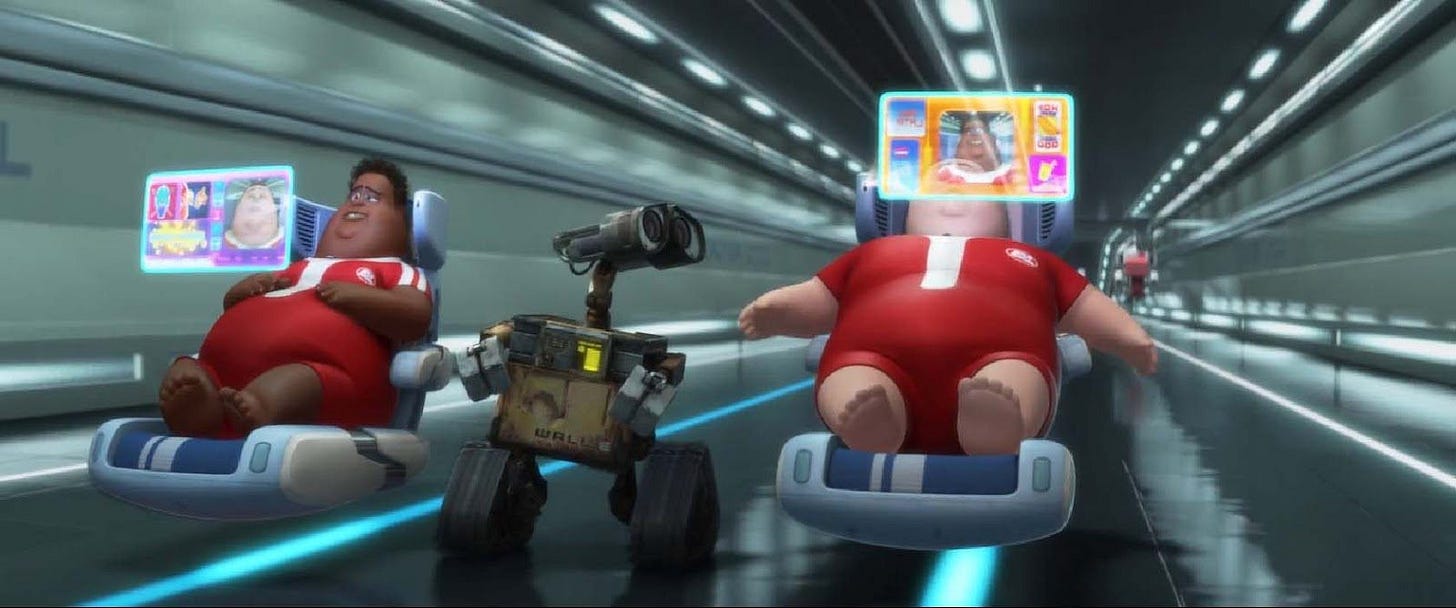Mainstream Addiction
Why I hate short form videos, and why you probably should too.
I don’t like YouTube shorts. I’ve been thinking lately about why.
Go on YouTube/Instagram/TikTok/etc., and here’s what happens: an algorithm trained with nearly infinite computing resources is directed at you, optimized to keep you there. The short form content means algorithmic learning cycles are fast, and within a few minutes of scrolling, the algorithm will figure out what best interests distracts you, addicts you, and holds you.
There are two primary reasons why this I find this so dangerous:
1. It’s all junk food for your brain.
I love this comment from Tom A:
It intrigues me how much focus some people place on their food intake, yet they do not give much consideration to the type of information and ideas they absorb or the impact it makes to their thinking and beliefs.
So many of us spend time fixated on physical health, yet we ignore that social media and short-form videos are the cognitive equivalent of junk food. The dopamine cycle is the same: the act releases dopamine, dopamine gives pleasure, absence causes pain; and this all happens with very high density at a high rate — short videos, large dopamine hit.
In some ways, sugar binges are less dangerous. The health repercussions are generally more obvious and immediate — you’re fatigued during the sugar crash, you gain weight, your cholesterol goes up, you generally feel worse. Plus, sugar as a causal culprit is well understood. But with the dopamine released from short-form videos, the results are often subtler. Your intrinsic motivation drops, you become less able to emotionally self-regulate, you’re generally less happy. The psychological effects — not the physiological ones — are primary.
But even that characterization feels reductive, which brings me to my second point:
2. You are what you eat think about.
To say that the principal downside of addiction are these measurable side effects is to diminish how utterly terrible this all is for your existence. Consider this comment by Gordon Wong , which considers the impact to your brain by analogy to Conway’s law:
Strikes me that there is a Conway's law going on here. Just like how orgs are structured as a function of how they communicate, maybe our minds are structured as a function of how we sense/learn
Just as you are what you eat, your mind must be structurally shaped by the information you ingest, to some extent. Of course, everything changes your brain. But what’s scary is that the changes feel volitional — it feels like you want them.
And this is something that is directly observable by scrutinizing what you want post-binge.1 The lack of intrinsic motivation feels less like a deficiency and more like a new love — your more noble motivation pathways become supplanted by more immediately rewarding ones, and you find yourself reaching for your phone when you would otherwise pick up a book. Poor emotional self-regulation manifests as a creeping impatience when having to deal with others, whose emotional consistency can’t possibly compare to the bubbly, one-sided, 10-second clips that you find on TikTok. And the decrease in happiness? You’re simply acclimating to a new baseline reality where you not only no longer feel satisfied watching videos, but worse — you feel dissatisfied with everything else.
In reality, if you take even a slight step back and look at what you’re wanting, there’s no way you would want any of that. You surely have dreams and aspirations, and none of them likely involve whittling down your motivation, making you more irritable, and being less happy.
Final comments
A final point that feels particularly scary to me: long-term, it feels like these platforms are performing value lobotomies. Where you once may have valued truth and self-improvement and hard work, new belief systems begin to calcify in your brain around your dopamine button. Dopamine is all that matters. Dopamine is happiness. We’re supplanting our hard-won principles with cognitive distortions pointed at addiction. This is probably why 54% of “young Americans”2 would become influencers, given the opportunity. Why our culture is moving from one that values art to one that peddles distraction.
I spoke with someone the other day who was confident that the world would self-correct, and over the next decade or so, we’d establish guardrails, even legislation around these systems. But frankly, I find the chances of this slim — social media abuse is a vice not unlike drinking or gambling, where, in moderation, the negative impact is somewhat negligible. But either way, all I can do is leave you with a word of caution: while the addictive tendencies are quieter and more mainstream, they’re still there. Addiction is still addiction — even if it doesn’t destroy your body, it’s not good for your mind.
I find that with many studies in psychology, you’ll find evidence of a signature, but practically speaking, it can help to scrutinize how that signature arises in your own consciousness (given the signature does indeed manifest in your own brain as well).
lol.


